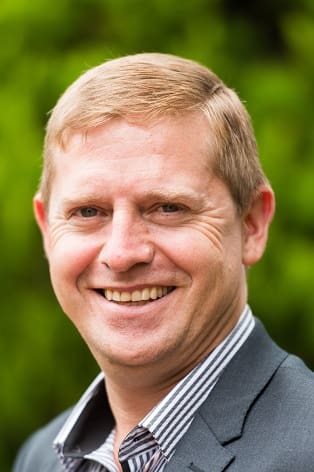AG Institute Australia (AIA), the peak industry body for agricultural and natural resource management professionals, is setting a course towards accreditation and greater professionalism to future-proof the organisation.
Newly-elected AIA chair, Turlough Guerin, said the AIA had to move to a more professional model to keep it relevant and address the issues of declining membership and revenue.
“The challenge is: “How do we keep relevant? What are the things that would make us more attractive to new members and energise our existing members?” he said.
“The way I see it, we need to build our professionalism to move us from an association to a profession. I’d like to set that direction during my tenure. It’s a trajectory I can be a part of shaping and setting.
“If we can get the concept of professionalism drummed into our heads that will be important, because it is a hard thing to understand. It is a change of mindset the way you look at yourself as a professional. This is the big challenge.”
Dr Guerin said the AIA was in the process of developing a chartered agricultural professional scheme which went beyond the continuing professional development (CPD) points scheme (where points are earned for such things as conference attendance, etc.).
“Having a chartered process, CPD is just one part of that. You have to have qualification requirements, commitment to ethics, work to a code of conduct, demonstrate you’ve reached certain professional standards, show you use reflective learning. We are building all those things into the chartered scheme,” he said.
“It sounds like a lot, but all you have to do is look at the failure of the financial advisory system. It is just a matter of time before someone does a big stuff up in agriculture. To me, we have to get future-proofed and the way we do that is to take our professionalism seriously and to a much higher level.”
Dr Guerin said the aim was to put in place a scheme that gave long term certainty to the new generation of agricultural advisers and consultants.
“It is just a matter of time before someone does a big stuff up in agriculture. We have to get future-proofed and…take our professionalism…to a much higher level.”
“If we set ourselves up as a more professional organisation and go down the path of the chartered scheme we could then think about getting government recognition through the professional standards authority,” he said.
“We could then start influencing universities and start asking them to write agricultural curricula to the level that will meet the requirements of our professional organisations. So, there is a whole swag of benefits coming out of it.”
Addressing the issue of declining membership, Dr Guerin said the AIA had to have a very open mind about building a broader church of members.
“For those of us doing the business advising and consulting – the classic member of the AIA – they are really not knowledge brokers. As a knowledge broker you have to be able to interface and know great talent from accounting through to zoology – from A to Z. You have to be able to bring in all the different players, whether they are government, a farmer, or whoever,” he said.
“Is it necessarily the engineer who is going to become a member? Probably not. But an engineer might become an adviser to a whole bunch of agricultural stakeholders, and therefore the AIA would be a very good home for them.”
Dr Guerin said the organisation had to find a way to attract the newer professions such as IT, engineering and financial technologists and help them transition their careers from technologists to advisers.
“We want to capture and help them in that transition because we want to be there to give them the credentials. If they are part of the AIA they can have some agricultural credentials which will help them build their market and business in the rural sector,” he said.
Dr Guerin said the other part of remaining relevant to the membership was “to get back to the good, old-fashioned events which the institute once had”.
“The institute has held some cracker events in my time, such as the recent one on artificial intelligence and deep learning at the University of Southern Queensland,” he said.
“We used to hold a national annual conference. We will pick that up again this year.
“We will try to move to an organisation that gets people thinking about their continuing professional development. We shouldn’t have members wondering why they want to come along. We have to be relevant.”
Grain Central: Get our free daily cropping news straight to your inbox – Click here


As the principal of an environmental engineering consultancy and MD of a cattle feedlot which needs to integrate with all levels of business, I can see the need to create a pathway for younger professionals to be able to engage in the science of agribusiness, as well as financial and HR management.
I find that Agribusiness Australia offers such a forum.